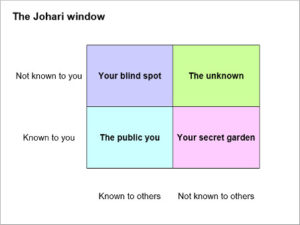You’re beautiful. You have an athletic and healthy body and no matter what your age is, you are looking young. And of course, it’s the same for your partner, who is just the most loving and kind person in the world. Someone who understands you completely. And you have lots of cheerful friends, supporting you, helping you in whatever adventure you share with them. That is so much fun!

You have a brilliant career. You are highly specialised and your boss appreciates you so much! The work is creative, interesting, fulfilling and you are making a lot of money. You also have all the time you need for your sports, hobbies, to travel and to relax. Life is so awesome!
This is what commercials show you, and what the perfect life should look like, following the world of advertising. Maybe we need a little reality check here…
Ouch, I’m different, I’m a multi-potentialite
OK, you might be young, beautiful and having a lot of loving people around you. I hope so. But how many of you are struggling with yourself because of the difference between what you are (multi-potentialites) and what the world wants you to be (highly specialised)? Even if you are a serial specialist or a serial master, there are always all these other options out there you still want to explore.

Other people call you a Jack or Jill of all trades. OK, you’ve had all kinds of different jobs before but that doesn’t mean you’re not good at anything. They can say you have your head in the clouds or that you’re not serious, you’re unstable, unreliable. But you know one thing for yourself: Nothing is further from the truth than that! How is it possible that what you know you are is so different from what other people think you are?
Ever heard of the Johari window? The Johari window was created by two psychologists, Joseph Luft and Harrington Ingham and Johari is the combination of their first names. It is mainly used in groups of people to discover and learn about themselves and their relationships with others.
How does the Johari window work?
There are 56 adjectives that can be used to describe a person. From this list, you can pick the ones that you find applicable for your personality. Your peers can also pick the adjectives from the same list that they think describe best your personality. The adjectives are placed in a two by two grid, so you have four different quadrants.

1. The public you (the open or arena): Adjectives chosen by both you and your peers. These are the personality traits that both you and the others are aware of.
2. Your secret garden (hidden or façade): Adjectives chosen only by you. This is the way that you see yourself but what others are not aware of. It’s up to you if you want to disclose this information to others or not.
3. The blind spot: Adjectives chosen by your peers but not by you. This is how you are perceived by others but that you are not aware of. This really can be an eye-opener or even a wake-up call when this information is given to you by your peers.
4. The unknown: Adjectives that were not chosen by you, nor your peers. These personality traits are not applicable, or they are applicable, but you and your peers haven’t recognised them (yet).
How to use the results of the Johari window?
The most interesting is the third quadrant. Your blind spot is how you are perceived by others. It is what people say about you behind your back. That is not necessarily how you truly are. It’s here that you find the expressions that you are unstable, unreliable, Jack and Jill of all trades, master of none, etc… Only you know better.

This quadrant teaches us things about ourselves. It’s not about who is right and who is wrong. Again, it’s about perception. And since we don’t see it, it’s natural to just dismiss the feedback from others, especially if it’s negative feedback.
If you feel that your peers have a completely wrong idea of who you are, you can start asking yourself: “What am I doing that is coming across as [fill out the blanks] and that I know I am not?”.
But it can also be a pleasant surprise. Often other people think more positively about you than you do. It’s in this positive feedback that you can find strengths that you didn’t know you had. Or, you discover that some things are just normal to you, but are extra-ordinary for other people and they appreciate it a lot.
Creating a Johari window for yourself and getting feedback from others might help you to find your ‘big picture’, your vision about your life and your over-arching theme. Explore and find out!
Your view?
